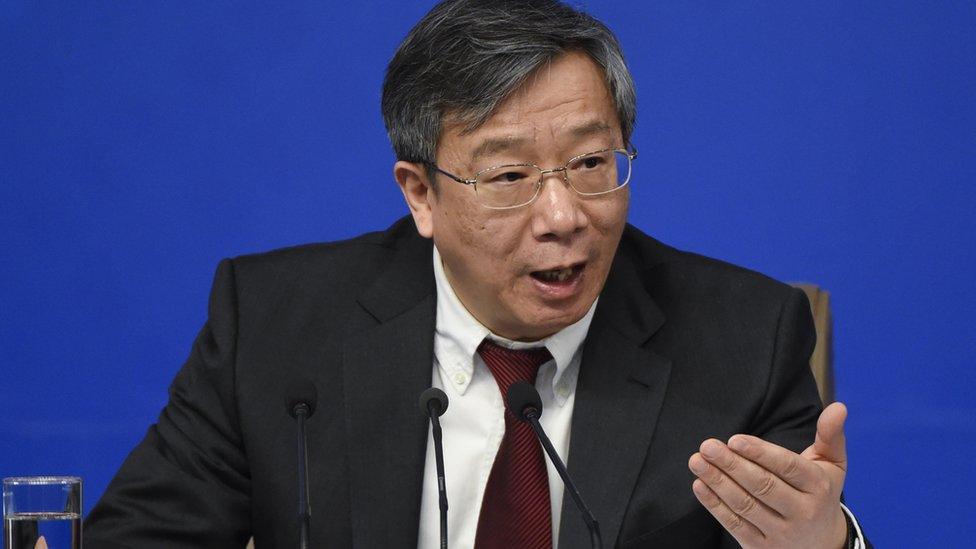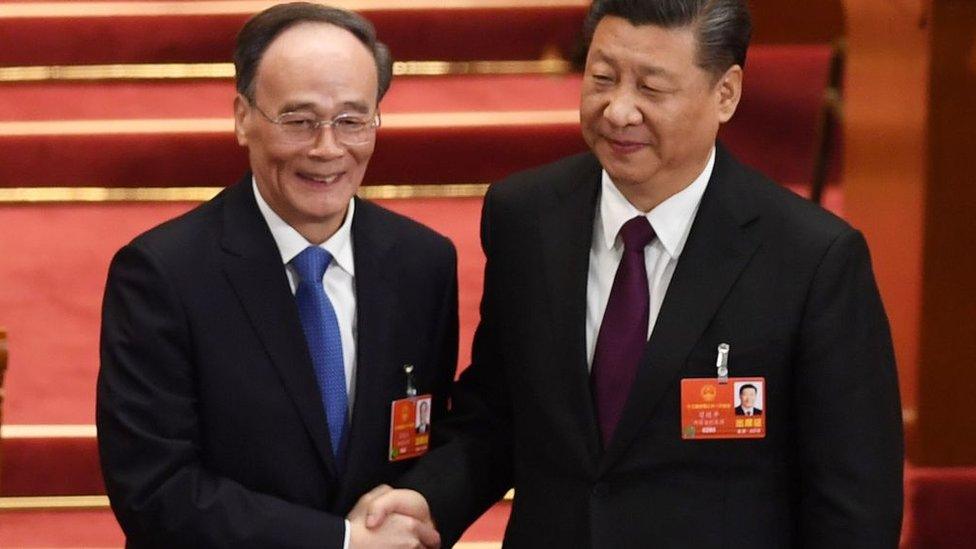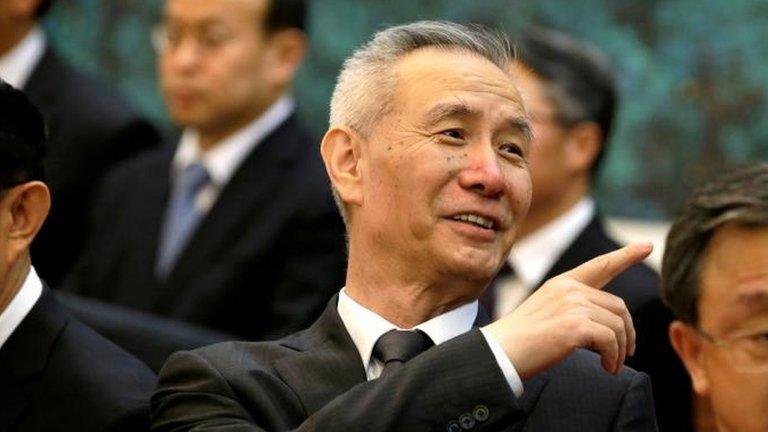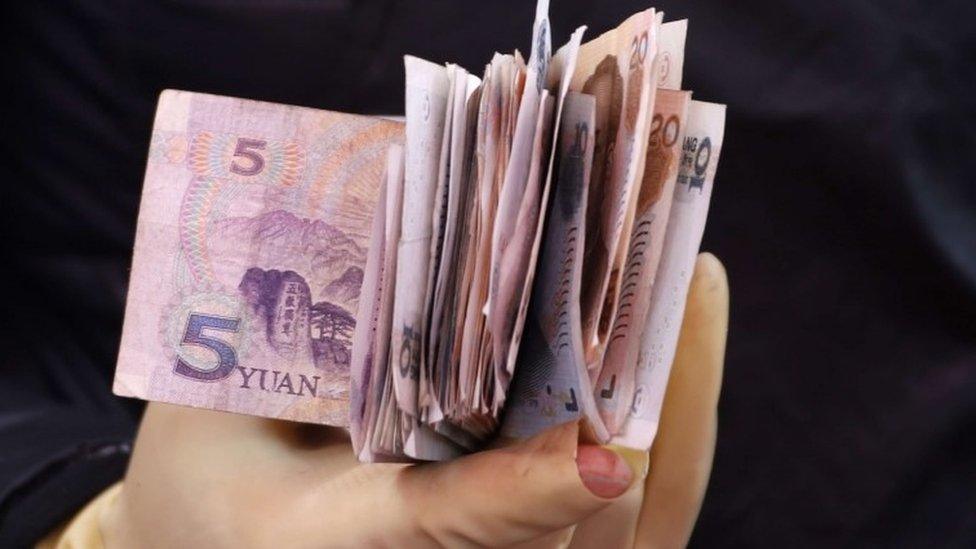Yi Gang named head of People's Bank of China
- Published

Yi Gang is set to take over a central bank with new powers
US-educated economist Yi Gang has been named the next governor of China's central bank, the People's Bank of China (PBOC).
Mr Yi has been deputy governor of the bank since 2008, but his appointment was largely unexpected.
It was one of a raft of appointments as the annual sitting of China's rubber-stamp parliament, the National People's Congress, draws to a close.
Other key names include President Xi Jinping's economic advisor Liu He.
He has become one of four vice-premiers, with special oversight of economic and financial matters.
Newly empowered bank
Mr Yi has been a protégée of his predecessor at the PBOC, Zhou Xiaochuan, who has been in the post since 2002.
His appointment is being seen as an attempt to ensure continuity at the bank as Beijing continues to try and rein in growing debt and limit risky financial practices.
He will take over a central bank tasked with ongoing reform of the financial landscape, including encouraging foreign investment into the financial markets, and monetary policy reform.
But the PBOC has also just become one of the most powerful bodies in China.
Last week, as part of sweeping changes to the central government structure, the NPC said the central bank would have increased control over making new laws and regulations for the banking and insurance sectors.
It was also announced that a newly formed banking and insurance super regulator, formed out of a merger between the Banking Regulatory Commission and the China Insurance Regulatory Commission, would oversee all of China's banking and insurance sector - and would effectively report into the PBOC.

Wang Qishan, left, shakes hands with President Xi Jinping after becoming his deputy
Unlike the United States and other large democracies, China's central bank does not operate independently of the government, and so Mr Yi will ultimately report into President Xi Jinping.
Mr Yi has a degree in economics from Beijing University, together with a master's degree and PhD in economics from the University of Illinois in the US.
Corruption chief to vice-president
Among other key appointments to the cabinet, known as the state council, have been four vice-premiers: Han Zheng, Sun Chunlan, Liu He and Hu Chunhua.
Liu He, a long-time key economic advisor to Mr Xi, was most recently sent to the US as Beijing's envoy for negotiations over controversial new trade tariffs. In the cabinet, he will oversee economic and financial matters.
Yang Xiaodu has been named the head of powerful new body the National Supervisory Commission. It will continue President Xi's campaign against corruption, with a far more wide-reaching mandate.
In what is being seen as a further consolidation on Mr Xi's power, his previous anti-corruption chief, Wang Qishan, was on Sunday named vice-president.
The recent abolition of term limits for the Chinese presidency extends to the vice-presidency, giving the position greater significance than before.
- Published19 March 2018

- Published17 March 2018

- Published13 March 2018
